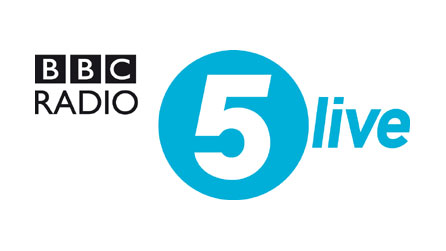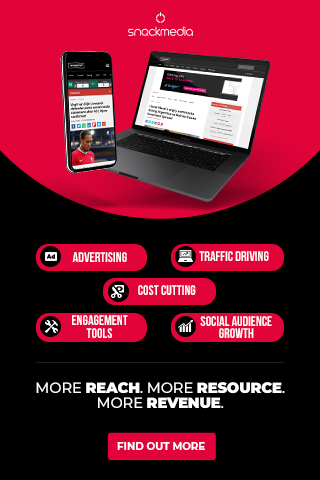‘Social Media & Sport’ programme on BBC 5 Live
Last week (29th June) I had the pleasure of appearing on BBC Radio 5 Live to discuss ‘Social Media & Sport’ with Matt Dawson (ex-England Rugby International) and Paul Kelso (Daily Telegraph Chief Sports Writer). The show also included pre-recorded interviews with footballers Rio Ferdinand and Robbie Savage, two of our biggest exponents of Twitter in the UK, and a chat over the phone with ECB Media Manager, James Avery.
The discussion was primarily around Twitter and its use by sports stars with some discussions on what Social media is, what ‘trending’ is and which sports people are using Twitter well/badly. It was a fairly basic overview aimed at people listening into the show who may not use twitter or see its benefits.
As is always the case you plan out what you want to say but the time went by so fast and your answers change as you do it live. It was an interesting programme and one that I hope the people who tuned in enjoyed.
Here is the programme in full, click on the picture below which will take you to iPlayer. The Social Media & Sport part of the programme starts at just past the 1 hour mark…..
The Rio Ferdinand interview was especially insightful and interesting. The Drum printed some excerpts from the interview and I thought it would be interesting to show them on here as well. Here is Rio speaking to BBC 5 Live’s Leon Mann;
“I just embraced it. At that time I was a bit skeptical of new things and products, but it’s a really good way of interacting with fans and people and shaping your image and avoiding giving a perception out to people of something that isn’t really true through a media outlet that doesn’t really know you.
“That appealed to me and I’ve started to get a better response, even just walking to the shop, because people see that you are normal. At the beginning I was on my way to London on a train and I had hundreds of people asking me ‘You actually get on a train by yourself?’ You touch people in different ways through media outlets.
“Sometimes I’d speak to a journalist, but you wonder to yourself, ‘why do I speak to them if they are going to spin it?’ when I can just say it here myself on Twitter and it shouldn’t get taken out of context. If it does, people can always refer back and see that I didn’t really say what is being claimed – that happened to begin with but you get reported on a little bit more closer to the truth in situations like that.
“Twitter is the best way to do it for me. The main word is control. And if anyone is trying to twist anything you say, that person will lose credibility in the long-run. It’s a powerful tool and if you use it right it puts you in a better position than you were without it.
“You can’t go into it willy nilly and gung ho. You have to make sure that you’ve got the club on board. The people at the club speak to me all the time about social media and to make sure that if I’m putting out things it gets double checked by the club – not ALL the stuff because a lot of it is when I’m just chilling with my kids – but if I’m talking about football matters that concern the club or could get me in trouble with the FA, I’ll always run it by the club to make sure that I’m not going into murky waters.
 “I ring up the club PR lady and a say ‘I’m going to send something about this, is that ok?’ or ‘I’m going to talk about this. Yes/No?’ and sometimes you have to use your own judgement and I’m fortunate that I’ve not landed into much trouble in terms of stepping out line and I aim to keep it like that. Keep it clean.
“I ring up the club PR lady and a say ‘I’m going to send something about this, is that ok?’ or ‘I’m going to talk about this. Yes/No?’ and sometimes you have to use your own judgement and I’m fortunate that I’ve not landed into much trouble in terms of stepping out line and I aim to keep it like that. Keep it clean.
“A lot of the lads before they do a lot of the stuff will speak to the club first, especially touchy issues or on high profile and relevant stuff. There are certain issues you just wouldn’t get involved in. If there’s issues involving certain players, why would you want to get involved? It’s not your business.
“The manager takes it with a pinch of salt as long as nobody steps out of line. The club has been fantastic about it as long as they can be involved in some shape-or-form. I can understand where the manager’s coming from. It’s new to him as it was new to me a year ago – I looked at it from a far and squinted a bit and didn’t think it was my cup of tea. But when you look at it a little closer you start to understand.
“People are getting information that they don’t normally hear about – straight from the horse’s mouth. I’m a parent, I’m a dad. I do normal things, the same things that Joe Bloggs is doing down the road, going to the park with my kids, messing around, the same things that they’re doing, the kids are waking me up at crazy times and I’m pulling my hair out and people say ‘oh you do that as well? We’re similar in that way!’
“People paint you as a celebrity on the red carpet, out ‘til all hours of the morning with a rock star status. I use Twitter to highlight to people that if we want to be at the top our game we can’t live like that.
“I just think that it’s a fantastic advertising tool. I don’t know any better way of advertising other than playing well on a football pitch. But it’s an advertisers dream in terms of speaking to 1.1million people. I’m speaking to people who are going to see it. If they don’t see it today, they’ll log on and see it tomorrow. You can’t put a price on that for a lot of advertisers. What’s mind boggling is that there’s so much good you can do with that…it’s not just about you interacting with fans or having something to ‘advertise’. There is a bigger picture to it too.
“Twitter has brought me closer to those type of people. People say you must hate Robbie Savage or whatshisname… Piers Morgan, but it’s just friendly banter.
“He [Piers Morgan] just mentions my grammar on Twitter. There’s a lot been said about grammar on Twitter. You get 140 characters to write with so you go shorthand and slang and stuff, but someone who thinks so highly of himself doesn’t use shorthand or slang, so I appeal to a broader audience than him and you can see that in the number of follower’s I’ve got compared to him.
“That’s what’s great about Twitter, I’m speaking to people you would never come across in a month of Sundays because you would never cross paths. But you become ‘friends’ thought a certain capacity and if we met now we’d have a laugh and a chat. That’s because of interacting on social media. It’s such a powerful tool. It’s mad because if I go on a train from London to Manchester or I walk into a shop, nowadays people sometimes aren’t asking for a picture or an autograph. They ask ‘can you follow me?’ Seriously! ‘I don’t want a picture, if you follow me I’ll be happy with that.’ So following on Twitter has become like an autograph, it’s just unbelievable.”
Thanks to Adrian Moorhead at the BBC for the invitation to participate on the show, it was a great experience.
About author
You might also like
SPORTEL 2021: Day One Recap
This year’s prestigious SPORTEL convention kicked off in sunny Monaco today, welcoming a host of familiar faces as well as plenty of new ones. Doors opened at 8:30am with businesses
Six Founding Riders Set To Bring The Vision Of The UCI Track Champions League To Life
Olympic Champions, UCI World Champions and World Record holders join the new track cycling competition debuting in November 2021 The UCI Track Champions League is delighted to announce that six
Sports related spending to soar this summer as pre-pandemic life resumes
New insights from eBay Ads UK reveal the potential for brands to engage with an excited but nervous nation as sports events get back on track As pubs and indoor









